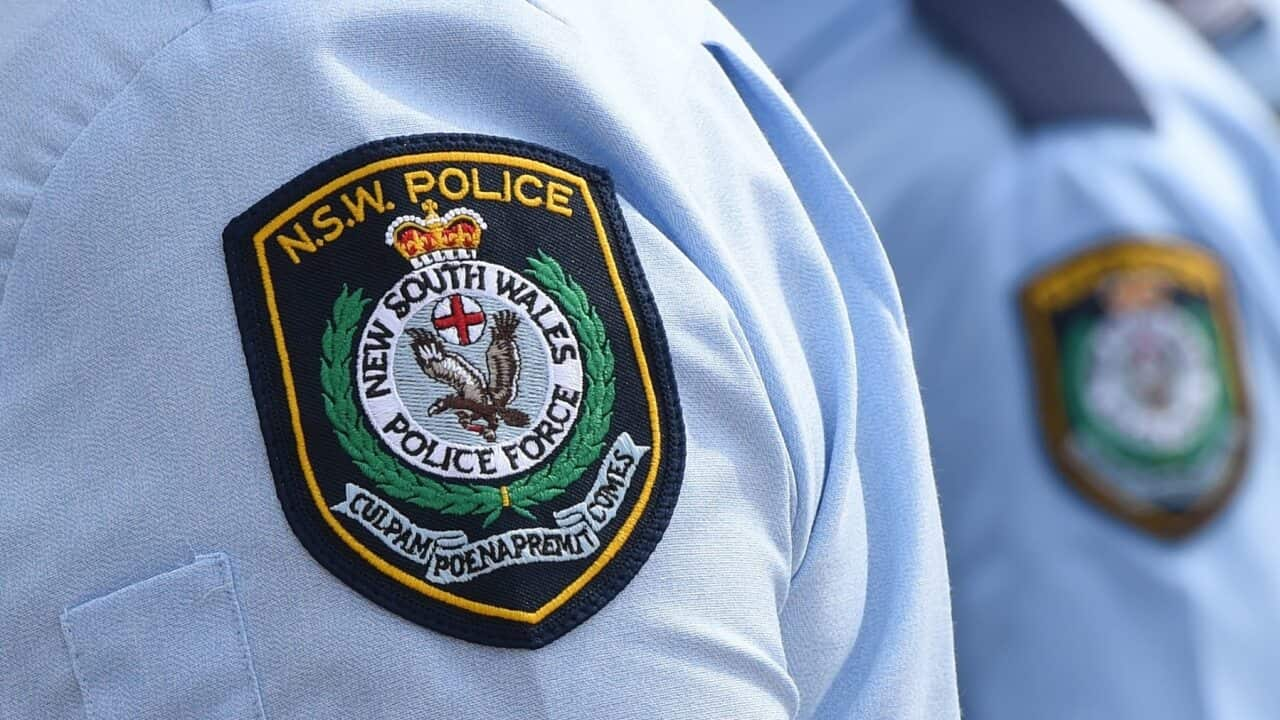Questions around police cover-ups and manipulation of evidence have dominated today’s coronial inquest into the police shooting of an Aboriginal teenager.
Kumanjayi Walker died after he was shot three times by former police officer Zachary Rolfe during a failed arrest in Yuendumu in 2019.
The Northern Territory Supreme Court cleared Zachary Rolfe on all charges over the death.
Tensions in Alice Springs have risen, with supporters of Kumanjayi Walker's friends and family gathering outside the coronial inquest.
Rolfe was filmed wagging his finger and telling a woman "Don’t be silly” as she approached him calling him a ‘f**cking pr**k’.
The incident has prompted Rolfe's council to call for more security to be provided to his client.
Officers deliberately switched off cameras
In what’s expected to be the last week of evidence, the inquest into the fatal police shooting of Aboriginal teenager Kumanjayi Walker in Central Australia in November 2019 has heard evidence of systemic issues of non-compliance in the police force to police rules.
Zachary Rolfe told the coroner that he and others in the force deliberately switched off body worn camera.
His text exchange with his senior colleague, Sergeant Paul Kirkby, was read out in court, with Counsel assisting asking if it was an indication of a culture of cover up.
On September 3 2019 Sgt Kirby text messaged Rolfe to apologise for “losing his shit” while on the job.
Mr Rolfe’s reply read: “There was literally no stress about it at all. I'm all for that shit. I've done the same thing to you more than once before. I'm always ready to make my camera face the other way and be a dramatic c**t for the film, Haha.”
“So on more than one occasion, you had said or done something on film to portray a story in a particular light favourable to police?” Counsel Assisting Dr Peggy Dwyer summised.
“No I wouldn't say that,” Mr Rolfe said.
“It's saying raising the volume [of my voice] so a private conversation or something unprofessional isn't said and I've done it for private conversations.”
Counsel Assisting also asked Mr Rolfe on a culture of non-compliance with body worn cameras, and breach of privacy with videos captured shared.
She asked Mr Rolfe about his own history of non-compliance – asking why there was no video footage of one exchange where Mr Rolfe says he ‘knocked out’ Aboriginal man Malcolm Ryder during an arrest, with Mr Ryder needing more than a dozen stitches for the injury.
“You can see how it might look in these circumstances that you deliberately turned off your body worn video on this occasion, so that there was not a record of the force that used,” Counsel assisting Dr Peggy Dwyer suggested.
“And I ask you that question, because yesterday you conceded that you and others in Alice Springs deliberately do not turn your body into video, because you didn't want certain lines to be captured.”
Mr Rolfe denied he was covering up episodes of excessive force.
The coroner heard that when Malcolm Ryder’s case did get to court it was thrown out, with Judge Greg Borchers finding Rolfe had likely deliberately banged Mr Ryder’s head on the floor.
“I cannot accept the evidence of either Constable Rolfe or Constable Zendeli when they say they saw punches thrown by Ryder,” the statement from Judge Borchers read, saying the constables that were closer to Ryder at the time had offered a different account.
“A body worn video shows no punches being thrown, Constable Rolfe and Constable Zendeli’s evidence is wrong and is pure fabrication.”
Mr Rolfe said he was aware of the findings, but didn’t give it much weight.
“Judge Borchers has had a history of making, I would say outrageous comments in his court findings, racist comments about Indigenous people abandoning their babies being primitive like and dragging their women out of caves,” Mr Rolfe said.
“We put this comment in the same bucket. I also knew that he was wrong about what had occurred. We had a junior we had a fairly Junior prosecutor, a particular witness wasn't called that would have assisted us and the defence lawyer was very good at his job.”
Racist language questioned again
Mr Rolfe was also questioned on texts shared with his circle of friends and colleagues about “smashing” Aboriginal communities and having a license to “towel-up” locals.
The term “towelling-up” is a colloquial expression isn't it for a severe beating?” Dr Peggy Dwyer asked.
“I can't count the severity,” Mr Rolfe said, “but yes, for a physical beating, Yes.”
“And is that how you meant it,” Dr Peggy Dwyer asked?
“I guess, we're just we're just talking shit,” Mr Rolfe responded.
“What do you think about the level of professionalism involved in 'talking shit' like that to another police officer who is dealing with Aboriginal people” Dr Dwyer asked.
“I think private conversations like this are used as a venting capacity where-so police officers can work on shift professionally in their interactions with public,” Mr Rolfe explained.
“This is a method where police officers can vent their frustrations between each other so then they don't vent their frustrations in their interactions with the public.”
“So I would say that the language is as I've said before, is racist and should not be used, we should do better, but the idea of the venting between police officers is a obviously it's a very healthy.”
During hours of evidence, Mr Rolfe was questioned on whether he had developed disrespectful attitudes to Aboriginal people at work.
He says he was policing the conduct and not the people, but said he had since reflected on his racist language and grown.
“I feel a sense of shame and regret,” Rolfe said.
Evidence continues tomorrow.












